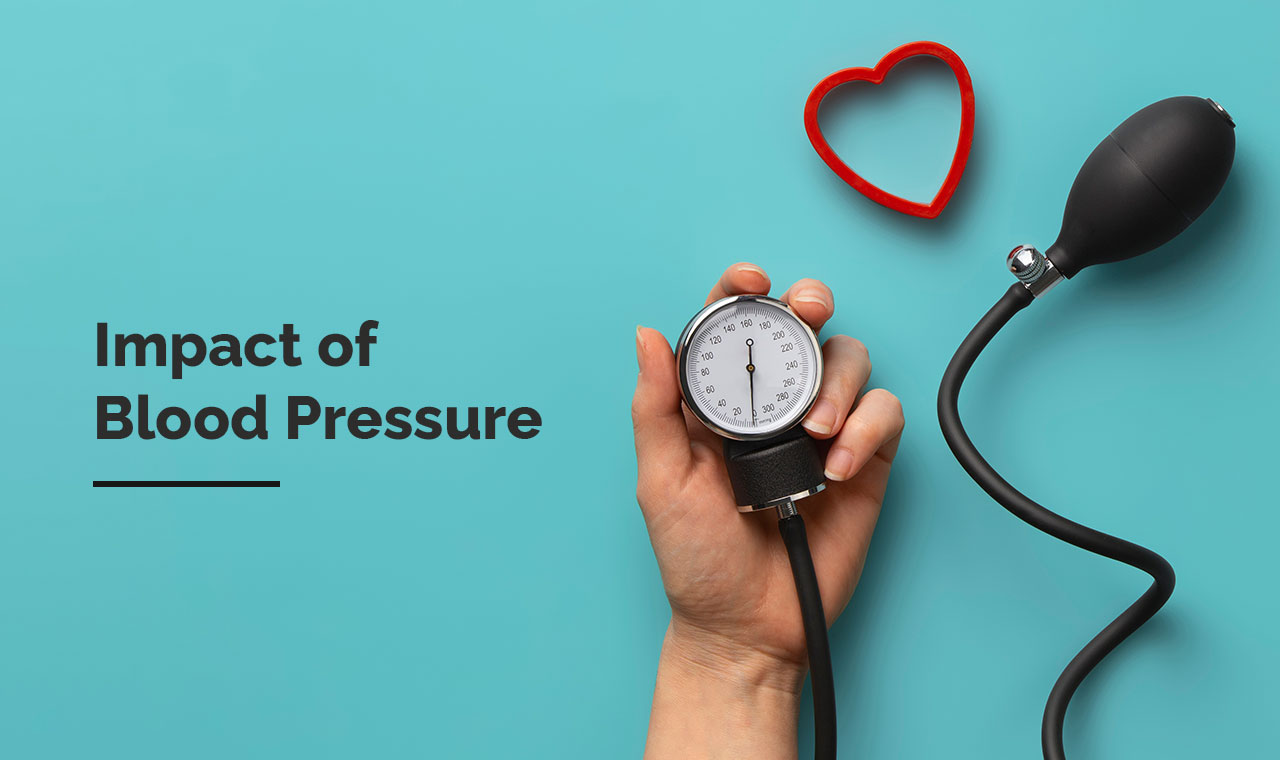Blood pressure (BP) is a critical health indicator, just as important as your body temperature. It reflects the force of blood pushing against your artery walls with each heartbeat. While high blood pressure, medically known as hypertension, often shows no warning signs, it can silently wreak havoc on your overall health.
This blog delves into why understanding your BP is vital and how it affects various parts of your body.
The Force Behind Blood Pressure
Imagine your circulatory system as a complex network of pipes. Blood, carrying oxygen and nutrients, travels through these pipes to nourish your body’s cells. Blood pressure refers to the pressure exerted by this flowing blood against the artery walls. It’s measured in two parts:
- Systolic pressure: The higher number, indicating the pressure when your heart contracts and pumps blood out.
- Diastolic pressure: The lower number, representing the pressure between heartbeats when your heart relaxes and refills with blood.
Why Blood Pressure Matters
A healthy blood pressure reading is essential for optimal health. When your BP stays consistently elevated, it puts undue stress on your entire cardiovascular system. Think of it like constantly running water at high pressure through delicate pipes. Over time, the strain can cause significant damage.
The Domino Effect of High Blood Pressure
Here’s a closer look at how high blood pressure can negatively impact various parts of your body:
- Heart Under Strain: Your heart is a tireless pump, working day and night to circulate blood. Consistently high BP forces your heart to work harder to overcome the increased resistance in the arteries. This extra effort can lead to a weakened heart muscle, increasing the risk of heart disease and heart attack.
- Stroke: A Blood Flow Blockade: Imagine a crucial supply route being cut off. That’s what happens during a stroke. High blood pressure can damage and weaken artery walls, making them more prone to hardening and narrowing (atherosclerosis). These narrowed arteries can become completely blocked, interrupting blood flow to the brain and causing a stroke. Deprived of oxygen and nutrients, brain cells begin to die, potentially leading to severe disabilities or even death.
- Kidney Damage: The Body’s Filtration System at Risk: Your kidneys act as a filtration system, removing waste products from your blood. They rely on healthy blood vessels to function properly. High BP can damage these delicate vessels, hindering the kidneys’ ability to filter waste effectively. Over time, this can lead to kidney disease and potentially even kidney failure.
- Eyes on High Alert: The delicate blood vessels in your eyes are also susceptible to damage from high BP. This can lead to various eye problems, including retinal thickening, bleeding, and even vision loss.
Taking Charge of Your Blood Pressure
Maintaining healthy blood pressure is crucial for your well-being. Here are some key strategies to empower yourself:
- Know Your Numbers: Regularly monitor your BP at home or during doctor visits. Early detection allows for timely intervention. Aim for readings below 120/80 mmHg (millimeters of mercury).
- Embrace a Healthy Lifestyle: A balanced diet rich in fruits, vegetables, and whole grains, combined with regular exercise, can significantly reduce your BP. Aim for at least 30 minutes of moderate-intensity exercise most days of the week.
- Manage Stress: Chronic stress can contribute to high blood pressure. Explore relaxation techniques like yoga, meditation, or deep breathing to manage stress effectively.
- Maintain a Healthy Weight: Excess weight puts additional strain on your heart and circulatory system. Losing even a modest amount of weight can significantly improve your BP.
- Limit Sodium Intake: Sodium is a major contributor to high blood pressure. Reduce your intake of processed foods, restaurant meals, and added table salt. Opt for fresh ingredients and cook more meals at home to control sodium levels.
- Don’t Smoke: Smoking damages blood vessels and increases your risk of heart disease and stroke. Quitting smoking is one of the best things you can do for your overall health, including your blood pressure.
- Moderate Alcohol Consumption: Excessive alcohol consumption can raise your BP. Limit your alcohol intake to a moderate level.
Conclusion
By prioritizing a healthy lifestyle and monitoring your blood pressure, you’re taking control of your health and reducing your risk of serious complications. Remember, consult your doctor for personalized advice and guidance on managing your blood pressure effectively.

